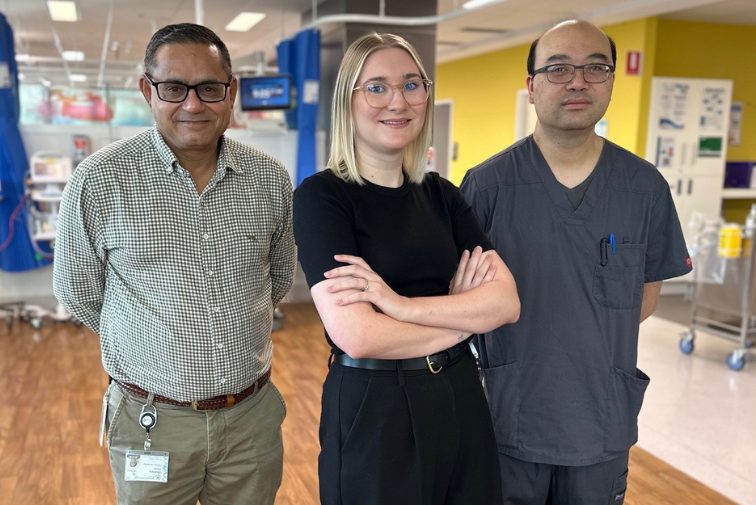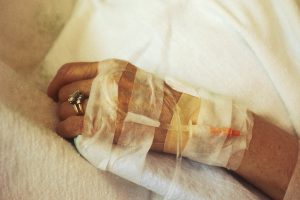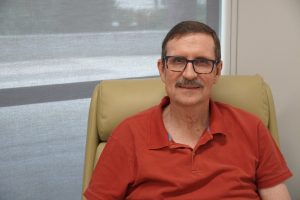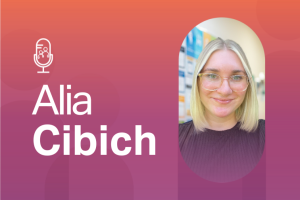For many early career researchers, a supportive mentor can be a key ingredient for future achievements.
Alia Cibich is the Clinical Data Manager at the RAH’s Bone Marrow Transplant and an emerging medical science researcher at the Central Adelaide Local Health Network.
She is also this year’s recipient of the CALHN Dawes Scholarship to support her PhD research project investigating the development of new cancers in patients who have previously had a blood cancer and received a stem cell transplant.
To coincide with International Women’s Day, we asked Alia how two mentors, Associate Professor Devendra Hiwase and Associate Professor David Yeung, have helped her career progression.
With the STEMM (Science, Technology, Engineering, Mathematics and Medical) disciplines still underrepresented by females, Alia says her mentors have provided support and opened doors to advance her research.
“My mentors have encouraged and enabled me to take the lead in various projects to build skills and confidence, and importantly prioritised my attendance at conferences and workshops over their own so I could network and establish myself as a credible researcher in the field,” Alia says.
In her view, a good mentor should not only have expertise in the chosen field but also be passionate about helping others.
“Seeing people achieve their goals – this selfless quality is why I feel clinicians often make great mentors.
“They should also be a good communicator, who is patient and actively listens, as well as candid with their feedback.
“And importantly they should be able to guide the mentee to answers rather than just giving them.”
A/Prof Hiwase believes he has a responsibility to provide guidance and support to early career researchers and clinicians.
“I am a clinician scientist, I have been a haematologist for 20 years and I have also trained in biomedical science and translating research. I am able to bring these skills to my mentee, including how to undertake clinical research and translate into clinical projects to improve outcomes for patients,” he says.
“We all have sat on someone’s shoulders to see the world beyond us and I feel I have some responsibility to do that for others – that has always been the mantra I use in my life.”
Key elements of being a successful mentor include being able to develop effective relationships, communication and ownership, A/Prof Hiwase says.
“Give them the freedom to do things but at the same time provide them with direction for their research. The mentee should have ownership for their research, and you provide the direction.”
A/Prof Yeung says some of the assistance he provided Alia included introducing her to his network.
“For us to be able to access other data sets I recognise the importance of introducing her to other colleagues to facilitate collaboration,” he says.
He believes successful mentor relationships should be “bilateral’.
“You need to get on with each other, respect each other, and understand what you can contribute to each other as it should be a bilateral relationship.”
Alia agrees a successful mentor-mentee relationship should benefit both parties.
“I also think a great mentor values what they can also gain from mentoring – it’s a two way street. They will enjoy sharing their knowledge, expertise and network to see the mentee grow,” she says.
She says if the relationship is not working “don’t be afraid to change mentors or seek out multiple mentors”.
“Different people offer different advice and expertise. A change of perspective can be highly valuable.”
Learn more about Alia’s research and her mentoring advice in this episode of Central Adelaide’s Our People podcast.
Photo caption (L-R): Associate Professor Devendra Hiwase, Alia Cibich, Associate Professor David Yeung.



